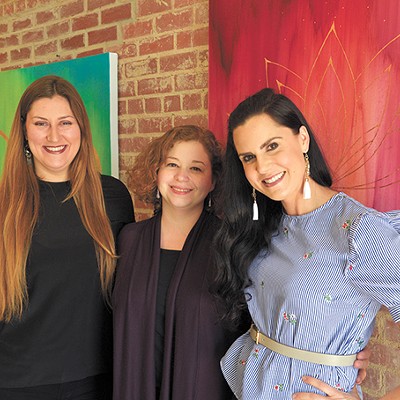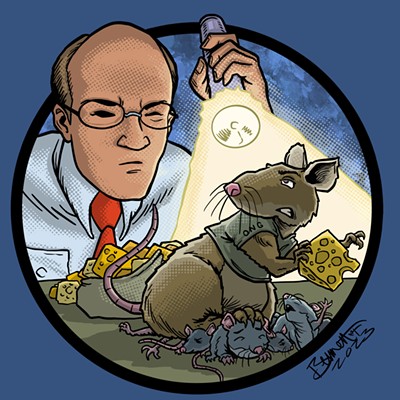Before recently, the scientific community considered it impossible that a carbon atom could feature more than its natural four bonds. It was an accepted part of basic chemistry that Oklahoma School of Science and Mathematics (OSSM) chemistry teacher Fazlur Rahman taught all of his students. That is until he read a paper by a German scientist who found that, in some rare circumstances, the element can form six bonds.
Rahman was fascinated by the study and told one of his classes about it. He sarcastically challenged them to do some calculations on the study.
Most other high school students would not know how to even attempt to check the work of an established German scientist, and some would probably shrug it off and play another round of Fortnite online instead even if they could. But this is OSSM we’re talking about. No one should expect their chemistry challenge to go unanswered within those walls.
George Wang, a senior at the school, had recently learned to use a supercomputer lab in Norman. He decided to first verify the work of the German scientist, which checked out. After that, he ran some calculations to see if seven bonds was possible.
“I tried multiple compounds, and one of them turned out to work,” Wang said in an interview with local NPR affiliated KGOU. “I was very surprised.”
“Very surprising” certainly is one way to describe a new discovery in fundamental chemistry theory by an 18-year-old. But Chicken-Fried News thinks a more apt descriptor might be “REALLY FREAKIN’ AWESOME!”
Wang’s peer-reviewed findings, checked by University of Oklahoma chemical engineer Bin Wang (no relation), have now been published in a scientific journal. The discovery could have uses in the plastic-making process or for storing hydrogen.
As a senior, Wang is getting ready to graduate from OSSM and plans to attend Stanford University in the fall. He has not settled on a major yet. We’re no talent scouts here at Chicken-Fried News, but we suggest Wang pick something in the realm of science or engineering. Call it a hunch, but we think he might have a knack for such things.














